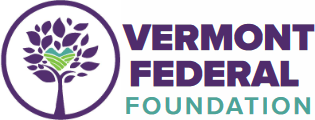Economic booms happen, and recessions happen. It’s part of the ebb and flow of market conditions. So, how do you prepare for the unknown while continuing to grow your financial future? Opening a savings account with credit union protections and benefits can help you do that.
Vermont Federal Credit Union is a community-oriented financial institution that operates with the best interests of our members at heart. We’ll break down exactly what a recession is and provide you with our top tips on how to recession-proof your finances and keep saving.
What Is a Recession?
The economic market fluctuates over time. Sometimes, the market is up; other times, it’s down. A recession is a period of economic decline lasting over several months. Recessions are never fun and often lead to employers laying off employees, stagnant wages for workers, businesses closing their doors, and property values dropping.
But don’t panic. We will help you take control of your finances so you can set yourself up for success even when the market sees a downward trend.
How to Recession-Proof Your Finances
Create a Monthly Budget
The first step to financial security is to create a monthly budget. If you already have a monthly budget but still have to use your credit card for everyday expenses, it may be time to re-evaluate your overall spending habits.
To get started:
-
- Total up your monthly income from all sources
- List your necessary monthly expenses (i.e., mortgage or rent payment, utilities, groceries, etc.)
- Add incidentals (i.e., entertainment, streaming services, gym memberships, etc.)
If you’re under budget (meaning you’re making more than you’re spending), you have more money to put into a savings account or to pay down your debt. If you’re over budget, consider where you can cut back to live within your means. Could you consolidate debt through a low-interest personal loan? Could you cut back on eating out or cancel some of your streaming services? If you’re over budget and have already cut out extra expenses, see if you can pick up extra shifts at work or find a second job to cover your bills. The goal is to cut your spending or maximize your earnings so that you have money to set aside each month for savings.
Open a High-Yield Savings Account
If you already have some money saved, consider opening a high-yield savings account. For instance, Vermont Federal Credit Union offers money market accounts with tiered interest rates to help you reach your savings goals even faster. The more money you save, the more you earn. On top of competitive interest rates, there are no minimum balance requirements or monthly fees. Add, if you need to tap into your savings, you can do so anytime.
We also have other savings accounts available to our members, including IRAs, Term Share Certificates, and special savings accounts you can designate for specific savings goals. Our financial products are here to help you gain financial freedom and save for a rainy day!
Build an Emergency Fund
Once you open a high-yield savings account, work on building your emergency fund. A good rule of thumb is to save anywhere from three to six months’ worth of living expenses. The exact amount will vary depending on your specific situation.
For instance, you may feel comfortable saving only three months of living expenses if you have a two-income household. On the other hand, if you have a single-income household with dependents, it may be wise to have the full recommended amount of six months saved instead.
There’s no hard and fast rule regarding exactly how much money you should have saved. We recommend doing what makes you feel most comfortable. After all, having peace of mind is priceless.
Improve Your Credit Score
Your emergency fund should cover you if a recession hits and the unexpected happens. But what if your emergency fund isn’t fully stocked or you start to run out of funds while you’re between jobs?
You can take out a personal loan to cover your monthly expenses and hold you over until you can get back on track. For example, a personal loan will often have more competitive interest rates than charging up your credit card. But to get the lowest possible rate, you’ll need a high credit score.
So do what you can to raise your credit score now. For starters, pay all your bills and debts on time. Keep your credit utilization (the amount of credit you’re using compared to your credit limits) at less than 30 percent. Check to ensure all the information reflected in your credit report is accurate, and follow other tips to raise your credit score fast.
Paying your debt on time, keeping your credit card balances low, and being proactive about raising your credit score will improve your chances of qualifying for a low-interest rate should you ever need a personal loan.
Start Investing
Once your emergency fund is built up, you should focus on saving for retirement. While individual circumstances vary, the general recommendation is to save 15 percent of your annual pre-tax income, including any employer match. Investing for retirement can mean many things, including investing in the stock market, building a 401k, starting a Roth IRA, etc.
If you save 15 percent of your pre-tax income for retirement and still have disposable income, consider opening an investment account. While many people feel the temptation to pull their investments when the market is down, that’s not always the best idea. You will likely take a loss if you sell when your investments are down. If you play the long game, on the other hand, the market tends to rise over time, and your assets will climb again. We recommend consulting with a financial advisor before making any investment decisions.
In a nutshell, the best way to recession-proof your finances is to prepare. Are you interested in getting started by opening a savings account with Credit Union benefits, like high yields? The team at Vermont Federal Credit Union is here to help. We’ll get your finances on track so you can weather any economic climate.




-1-1.jpeg)



